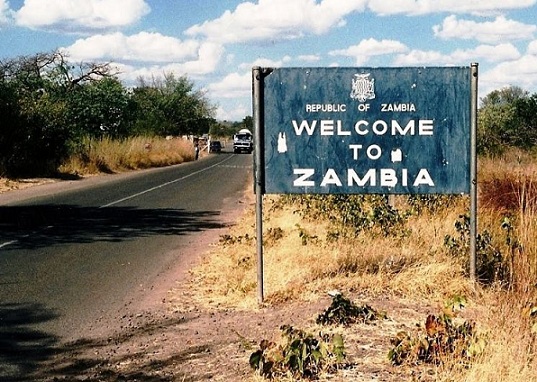
Zambia ramps up pace of deportations

A sharp increase in deportations in Zambia have left activists wondering whether the country, once known for being tolerant to differing opinions and cultures is slowly adapting a harder stance on immigration.
The southern African nation’s authorities have recently barred or deported prominent individuals from across borders under the guise of “sovereignty and prerogative to allow or not allow any individual to enter the country”.
The latest barring on September 29, was that of Kenyan law professor and former director of the anti-corruption commission Patrick Loch Otieno (PLO) Lumumba, due to “security considerations”.
Prof Lumumba was due to deliver a talk on Chinese influence in Africa at the private Eden University in Lusaka.
The reason for the deportation was made known by chief government spokesperson Dora Siliya, who cited “security reasons”.
Home Affairs minister Stephen Kampyongo chimed: “We are a sovereign nation with rights to allow or not to who enters our borders.”
But an upcoming politician with the opposition National Restoration Party (NAREP), Mr Frank Sichone, said that because of the deportations, Zambia’s “haven of peace” image risked getting eroded.
“The government should reconsider its position, for example, why bar Lumumba? So when he goes outside he will say he was deported from Zambia, and that signals a bad image about a country that is seeking investors,” he said.
“The deportations do not reflect well on a country that is known for tolerance.”
Zambia, for decades, harboured many liberation fronts from the southern Africa region, among them South Africa’s African National Congress (ANC) and Namibia’s South West Africa People’s Organisation (Swapo).
The barring of the lawyer was only the latest of such events that happened systematically and in similar fashion, starting early this year.
On March 10, Zambian immigration authorities deported controversial South African dancer Zodwa Wabantu, who is popularly known for performing without underwear, claiming her shows would “undermine national values”.
Zambia is a conservative country whose constitution explicitly states that it is a Christian nation, in contrast with the more liberal South Africa.
Zodwa was due to perform in Lusaka at the launch of a music album organised by a local entertainment company, Sunset Sound Production.
Social media was again awash with the Zodwa debate, sharply criticising Religious and National Guidance Affairs minister Godfrey Sumaili, who cited moral reasons for the deportation.
A little over two months after that fiasco, it was South Africa’s opposition leader Mmusi Maimane.
Mr Maimane, of the Democratic Alliance party, planned to attend the trial of Mr Hakainde Hichilema, the leader of Zambia’s United Party for National Development (UPND), who was facing treason charges which were later dropped.
Mr Maimane said his barring was politically motivated.
He was not even allowed to get off the plane as immigration officials boarded it on arrival in the capital, Lusaka, and prevented him from disembarking.
Mr Maimane, who returned to South Africa after the failed attempt, told local media that the incident was “madness” and he had been subjected to “apartheid-era” treatment.
Zambia’s ruling Patriotic Front (PF) party had warned Mr Maimane against his visit.
Mr Hichilema was accused of endangering incumbent President Edgar Lungu’s life and charged with treason, a crime for which the maximum penalty is death. He been held without bail as treason is a non-bailable offence in Zambia.
Critics of President Lungu have been alleging his style of governance was gradually degenerating into authoritarian.






